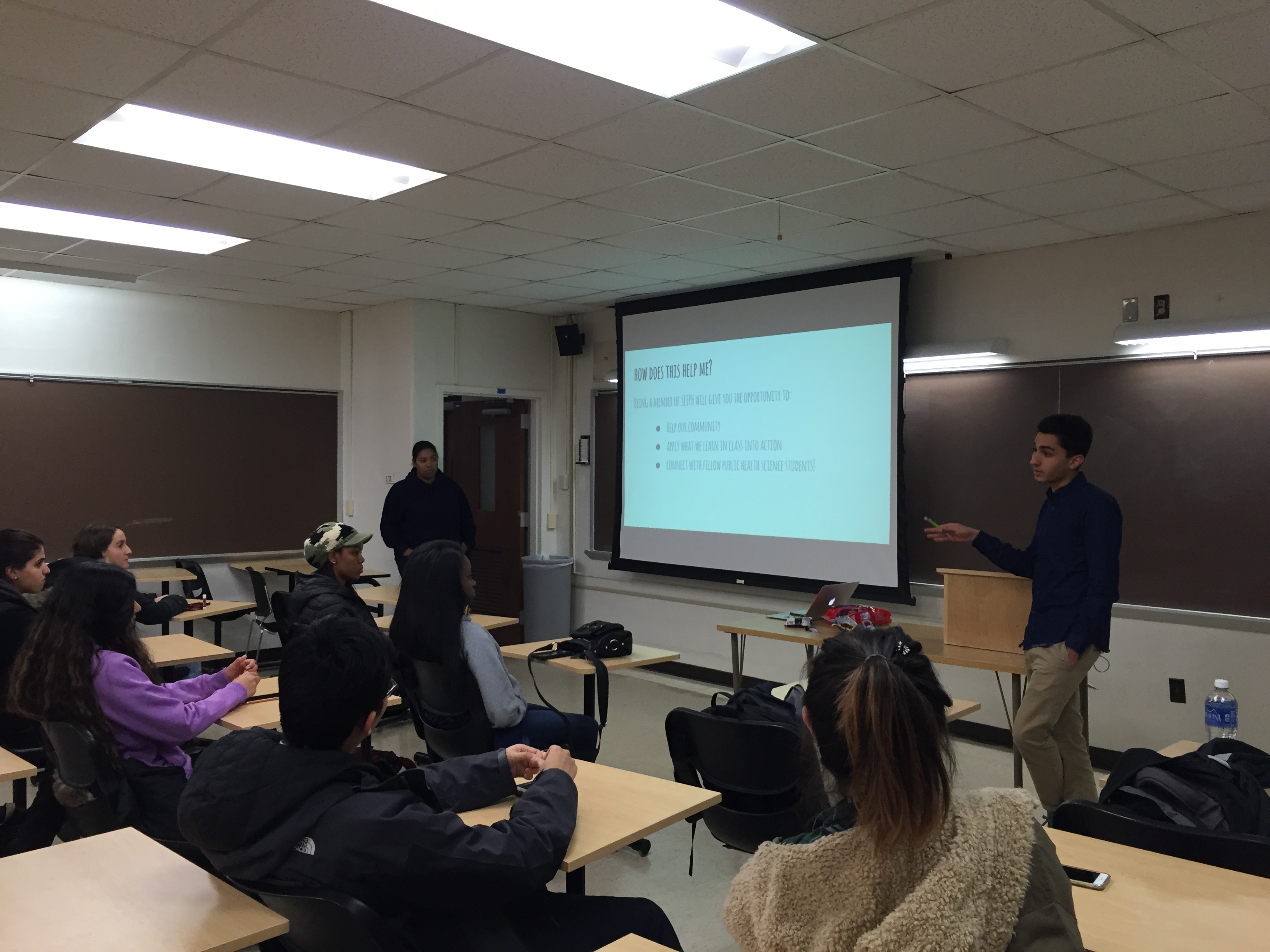By Nick Gardner
For The Diamondback
While sophomore Karn Randhawa has been learning a lot as a public health science major at the University of Maryland, he said there aren’t a lot of hands-on opportunities to put that learning into action.
“Since the [public health science] major came to this campus, there was no real organization to represent us, and to me that seemed like a problem,” Randhawa said.
For this reason, Randhawa, along with junior public health science major Maria Amador and two other students, helped create a chapter of Students Engaged in Public Health, a campus group that started this semester.
The club holds bi-weekly meetings where students are encouraged to discuss prominent public health issues that affect Prince George’s County. Some issues discussed recently include obesity, pollution and nutrition. At every discussion, the group offers a corresponding volunteer activity where members turn their words into actions.
For example, when the group discussed nutrition, they paired up with a student group called Food Recovery Network to distribute leftover food from the university dining facilities to families in need in the county.
“Public Health is mostly about action, and [Students Engaged in Public Health] gives members the opportunity to apply what they learn in class into the real world,” Randhawa said.
The organization started at the university’s Shady Grove campus, and when the public health department’s assistant clinical professor Gretchen De Silva learned about it, she mentioned it to students at the College Park campus.
De Silva “was impressed by how active they were and how devoted the students are to public health,” she wrote in an email, noting that she “hope[s] that the club will expand beyond campus and become a changing force in the College Park community.”
De Silva currently serves as the club’s advisor.
Although organization membership is currently only open to public health science majors, Amador said she would like to see the club expand to the entire campus and for anyone interested.
All four executive committee members and De Silva said they agree the primary focus for the upcoming semester is to expand the organization by recruiting more members.
“The student members are really going to be the driving force behind expanding the club,” De Silva wrote in an email. “The best advertisement for us will be their amazing activities and programs and their passion for public health.”
As Students Engaged in Public Health grows, Amador said she hopes the members are able to “walk away with something that they haven’t even thought about before.”
“The volunteer aspect is really something that got me involved,” said Jernelle John, a freshman public health science major and executive committee member. “I really hope that we will be able to have more volunteer opportunities.”



